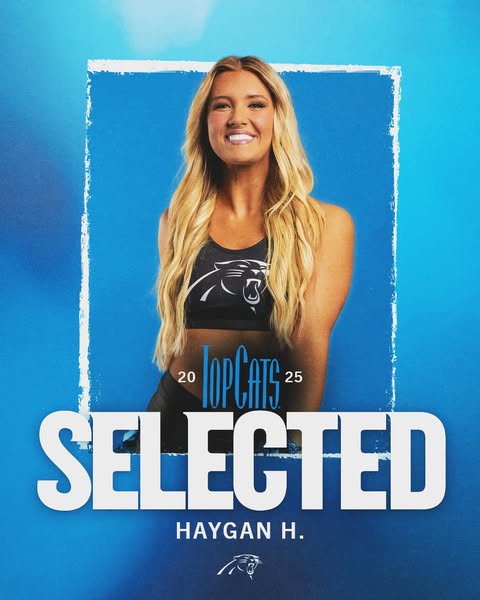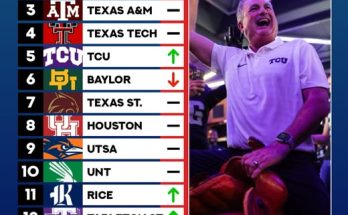The Charlotte Observer, a cornerstone of journalism in North Carolina, has taken a bold and heartfelt step into the world of documentary filmmaking with its latest project, a moving and deeply immersive film chronicling the history, struggles, and triumphs of the Carolina Panthers. This isn’t just another sports documentary. It’s a labor of love and civic responsibility—every dollar earned from the film’s release will be donated directly to a veterans’ charity, bridging the worlds of football fandom and social impact in an extraordinary way. The Observer’s initiative is not only a testament to the storytelling power of sports but also a resounding statement about the values of service, legacy, and community.
The documentary, titled Keep Pounding: The Carolina Panthers Story, offers an intimate look into the heart and soul of a franchise that has captured the spirit of the Carolinas since its inception in 1993. The title itself is a nod to the team’s enduring mantra, inspired by the late Sam Mills, a former linebacker and coach who embodied perseverance and courage, both on the field and in his personal battle with cancer. From the early expansion days and the first time a Panther took the field in 1995, to their Cinderella run to Super Bowl XXXVIII in 2004 and their near-perfect season in 2015, the film takes viewers on an emotional journey that transcends statistics and scoreboards.
But beyond the game highlights and historic plays, the film leans heavily into the people who made the Panthers who they are: the players who gave their all, the coaches who led with vision and grit, the fans who bled black and blue through thick and thin, and the Charlotte community that rallied around its team as a source of regional pride. With candid interviews from past stars like Jake Delhomme, Steve Smith Sr., Julius Peppers, Cam Newton, Luke Kuechly, and Thomas Davis, the documentary breathes life into the team’s most defining moments. Archival footage interwoven with modern cinematography paints a vivid portrait of evolution—not just of a football team, but of a franchise that has become a cultural pillar.
While the football narrative is compelling enough, the Observer’s decision to donate all proceeds from the documentary to a veterans’ charity elevates this project into a different realm entirely. The charity, Carolina Warriors Foundation, is devoted to supporting military veterans across both North and South Carolina. Their work includes providing transitional housing, mental health resources, job placement programs, and emergency financial aid for veterans re-entering civilian life. It is an organization deeply rooted in values of duty, resilience, and healing—all themes mirrored in the story of the Panthers.
The link between football and the military has long been established, from camouflage-themed gear during Salute to Service month to honorary coin tosses and halftime tributes. But this documentary doesn’t settle for symbolic gestures. It provides real, tangible support by channeling fans’ passion for their team into financial assistance for veterans who have served their country. The Observer’s leadership—specifically editor-in-chief Shana Poteat and managing director Harold West—explained in a press release that this was never meant to be a commercial endeavor. “We see this as storytelling with purpose. The Panthers’ journey has inspired so many in our region. We wanted to use that inspiration to give back in a way that matters.”
The public response has been immediate and powerful. Since the film’s premiere at the Knight Theater in uptown Charlotte, tickets have sold out for every local screening. Online sales for digital rentals and Blu-ray copies have also surged, with thousands of fans eager to relive Panthers history while supporting a noble cause. The audience reaction at the premiere was emotional. Applause broke out at several key moments: when footage of Mills’ “Keep Pounding” speech played, when Steve Smith talked about playing with a chip on his shoulder, when Newton reflected vulnerably on the team’s Super Bowl 50 loss and how it changed him. The documentary didn’t shy away from heartbreak or controversy. It included the turbulence surrounding ownership transitions, playoff collapses, coaching changes, and injuries that derailed seasons. But it did so with grace and transparency.
One particularly moving segment focuses on how the Panthers responded to the mass shooting in Charleston in 2015 and the protests in Charlotte in 2016. Several players used their platforms to speak out on issues of racial justice and inequality. The team leaned into its identity not just as an entertainment product, but as a social force capable of healing and advocacy. That intersection of sports, activism, and civic duty becomes a central theme throughout the film. It’s not just about what happens on Sundays—it’s about what kind of community the Panthers help foster the other six days of the week.
The Observer’s editorial board has long championed community service, but this project marks a new chapter in its role as a community convener. Journalistic institutions around the country are being forced to evolve as their traditional business models come under pressure. This initiative is a bold step into a hybrid world of media, philanthropy, and civic engagement. It sets a new bar for what local newsrooms can aspire to be: not just chroniclers of history, but active participants in shaping the future.
Veterans who have benefited from the Carolina Warriors Foundation have also played a role in the documentary’s development. Several appear in the film to share their stories, drawing an emotional line from the battlefield to the football field. One Marine veteran, James Kelley, speaks about how watching the Panthers every Sunday was the one connection he had to home while stationed overseas. Another former Army sergeant describes how a Panthers tailgate was the first social event he felt safe attending after returning from deployment. These stories are powerful reminders of the broader impact sports can have on identity, belonging, and healing.
Looking ahead, The Charlotte Observer plans to take the documentary on the road with pop-up screenings in smaller cities and towns throughout the Carolinas—places like Rock Hill, Gastonia, Greenville, and Wilmington. Each stop will include panel discussions featuring former players, community leaders, and veterans. These aren’t just movie nights; they are public forums for storytelling and service. The Observer has also partnered with local high schools and community colleges to use the film as an educational tool, particularly in courses related to media studies, sports management, and social justice.
What started as a retrospective celebration of a beloved football team has grown into a movement. The Panthers’ history is one of ambition, heartbreak, resilience, and communal pride. But by tying that story to a cause as vital and urgent as veteran support, the Charlotte Observer has created something more than a documentary. It has crafted a bridge—a living tribute that connects the past to the present, athletes to citizens, fans to heroes.
In a time when division often dominates headlines, this project reminds us that sports can still be a unifier, a mirror, and a vehicle for compassion. The Charlotte Observer has not just told the story of the Panthers—they’ve deepened its meaning. They’ve ensured that the roar of the crowd echoes beyond the stadium, into the lives of those who have sacrificed for the very freedoms we often take for granted. Through Keep Pounding: The Carolina Panthers Story, they haven’t just given fans a chance to cheer—they’ve given them a chance to give back.



